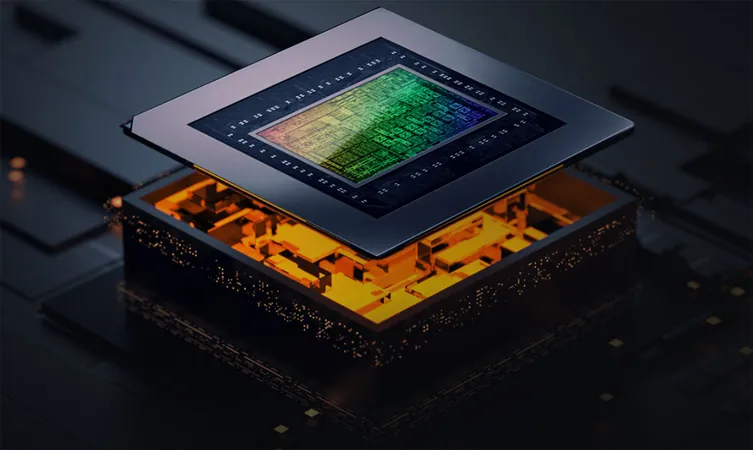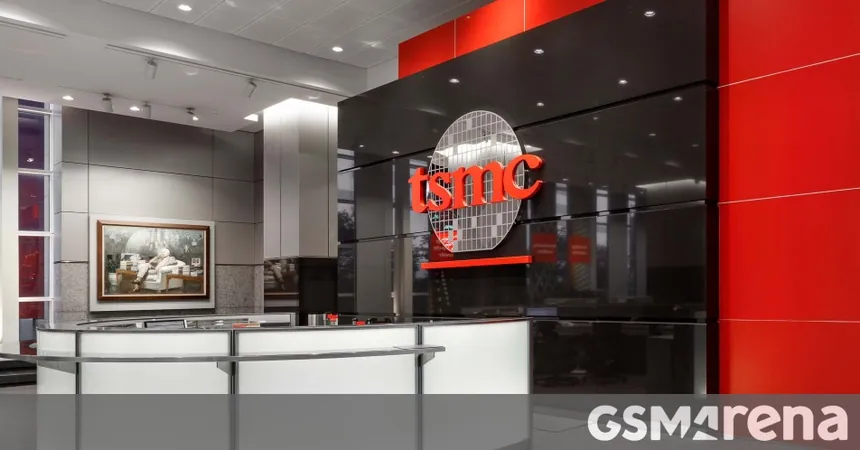
Xpeng May Abandon Thor Chip Plans as Nvidia Faces Production Curse – What's Next for the EV Market?
2024-12-16
Author: Daniel
Introduction
In a shocking turn of events, Xpeng is reportedly reconsidering its plans to integrate Nvidia's much-anticipated Thor chip in its upcoming models for next year. This news comes amidst widespread delays from Nvidia, putting pressure on the electric vehicle (EV) market and its manufacturers.
Nvidia's Thor Chip Delays
Nvidia, a giant in the semiconductor industry, has run into significant delays with the Thor chip, a next-generation smart driving solution initially expected to be in mass production by mid-2024. As the situation stands, the chip's rollout has been pushed back, leading to concerns that it will only be available in a limited, entry-level version in the near future. This postponement is causing major players in the EV sector, like Xpeng and Nio, to rethink their strategies for new model launches.
Competition in the EV Sector
The Thor chip was unveiled in September 2022 as a cutting-edge upgrade designed to offer up to a staggering 2,000 teraflops (TOPS) of performance—eight times the capabilities of its predecessor, the Orin chip. With such impressive specifications, many automakers, including Zeekr and Li Auto, had high hopes for integrating Thor into their future vehicles. However, with the production timeline now uncertain, Xpeng has opted to fall back on the Orin chip for its P7+ sedan launch.
Nio, another competitor in the EV space, has also decided against incorporating the Thor chip in its upcoming models. Instead, Nio plans to rely on its own Shenji chip, alongside Nvidia's Orin and additional chips from Horizon Robotics. The Shenji NX9031 chip was recently showcased at Nio Day 2023 and is set to power the new ET9 flagship sedan, which is already available for pre-order, with a grand unveiling set for Nio Day 2024.
Developments in In-House Technologies
Xpeng made strides with its own chip development as well, announcing the successful tape-out of its first AI chip, Turing, which could signal the company's shift towards greater autonomy in its tech solutions. Furthermore, it appears Li Auto is also racing to develop its own smart driving chip, codenamed "Schumacher," alongside researching an innovative driving solution referred to as VLA (visual language action modeling).
Challenges for Nvidia
The turmoil around the Thor chip seems to stem from complications with its architecture, particularly its integration with Nvidia's latest high-performance GPU design, Blackwell, which is crucial for advanced AI and generative capabilities. With mass production of Blackwell also facing consistent setbacks, the future of the Thor chip remains precarious.
Conclusion
As the battle for dominance in the EV sector heats up, the delay of critical components like the Thor chip is becoming a double-edged sword—while it creates hurdles for automakers hoping to integrate cutting-edge technology, it also opens doors for competitors leveraging their in-house solutions. With all this in play, the question looms—who will come out on top in this electrifying race toward autonomy? Stay tuned as we continue to track the developments in this rapidly evolving narrative!


 Brasil (PT)
Brasil (PT)
 Canada (EN)
Canada (EN)
 Chile (ES)
Chile (ES)
 España (ES)
España (ES)
 France (FR)
France (FR)
 Hong Kong (EN)
Hong Kong (EN)
 Italia (IT)
Italia (IT)
 日本 (JA)
日本 (JA)
 Magyarország (HU)
Magyarország (HU)
 Norge (NO)
Norge (NO)
 Polska (PL)
Polska (PL)
 Schweiz (DE)
Schweiz (DE)
 Singapore (EN)
Singapore (EN)
 Sverige (SV)
Sverige (SV)
 Suomi (FI)
Suomi (FI)
 Türkiye (TR)
Türkiye (TR)